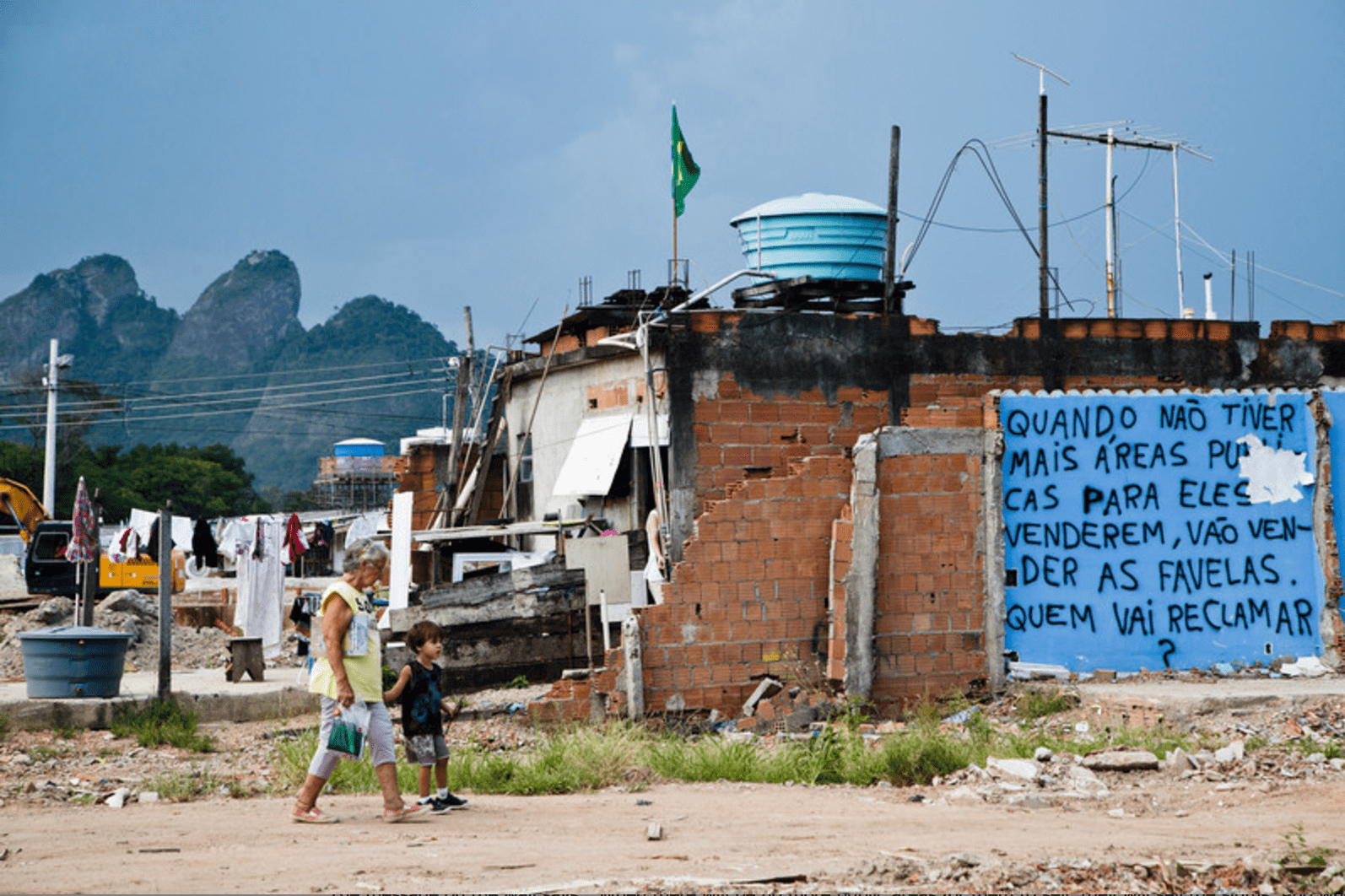- Amnesty International launches new campaign to defend human rights in Brazil
- Proposed changes would reduce legal protections for children, women, LGBTI individuals and Indigenous Peoples
- ‘Human Rights Are Not For Sale’ campaign launches with public stunt outside National Congress on 31 July
Amnesty International today launches a new campaign to fight back against a raft of changes currently being discussed by Congress which could reduce legal protections for marginalized groups, impose a total ban on abortion, put an end to sex education, and ease gun licensing laws.
“Human rights are under critical attack in Brazil and in response Amnesty International is stepping up to the front line,” said Jurema Werneck, Amnesty International Brazil’s Executive Director.
“This legislative agenda is being rushed through Congress behind a smokescreen of the current political and economic crisis. If passed, it will put the lives and rights of millions of people at risk – especially those who already face discrimination and marginalization.”
Roll back on legal protection for children
The proposed changes include legislation that will lower the age at which children can be tried as adults – in flagrant violation of international human rights law, including the Convention on the Rights of a Child to which Brazil is a party. At present, any individual under the age of 18 at the time of the alleged offense must be treated in accordance with the rules of juvenile justice.
“If children face trial as adults and end up in prison, they will be put in an extremely vulnerable situation in which their human rights would be further jeopardized. Brazilian prisons are severely overcrowded and the conditions of detention are appalling across the country,” said Jurema Werneck.
“Children differ from adults in their physical and psychological development and this basic fact must always be front and centre of any judicial process they may face.”
Amnesty International is calling on Congress to reject all constitutional amendments that might lower the age at which children can be tried as adults to any age below 18.
Attack on sexual and reproductive health and rights
Women and girls’ health and rights would be severely impacted under proposed amendments which seek to impose a full ban on abortion, including in cases where pregnancy resulted from rape or involves risk to the mother´s life.
In addition, Congress is considering proposals that will remove all information on sexual and reproductive health from the syllabus of primary and secondary schools. This ban will include education about gender identity and sexual orientation which will further undermine the rights of LGBTI people (lesbians, gays, bisexuals, transgender and intersex). Last year, Brazil registered the highest number of transgender people killed in the world, and authorities have not done enough to implement policies to stop this.
“Brazil must decide on which side it stands. Either it follows the trend of countries in the Americas that have chosen to protect sexual and reproductive health and rights. Or they can join the smaller group of countries which use harsh and cruel laws to violate women and girls’ rights to freely decide over their own bodies, their health and their lives,” said Jurema Werneck.
Relaxing gun laws
Amnesty International fears that some of the proposed measures, especially revoking the Disarmament Bill, could lead to a major increase in the availability of firearms. According to official figures, almost 60,000 killings were recorded in Brazil in 2015, more than 70% of which were committed using firearms.
“In a country with such incredibly high levels of gun violence, making it easier to possess firearms is quite simply reckless. The Brazilian authorities have an obligation to reduce and prevent firearms violence in order to protect lives, they should not be seeking to make these crimes easier to commit,” said Jurema Werneck.
Indigenous and Afro-descendant’s right to land
Brazil’s Indigenous Peoples and quilombolas (afro-descendant communities) could see their right to land curtailed, since proposed changes that Congress plans to approve on land demarcation and entitlement would put economic interests above the rights of Indigenous and tribal peoples guaranteed by the Constitution and international law.
For decades, human rights defenders working on issues related to the land, territory and the environment in Brazil have been threatened, persecuted and killed. In 2016, at least 58 human rights defenders and rural community leaders were killed as a result of conflicts over land, a marked increase on the previous year when 47 were killed. Shortcomings in the implementation of a National Programme for the Protection of Human Rights Defenders, including the lack of adequate resources, have further increased the risks they face.
Curbs to freedom of expression and peaceful assembly
The current proposals in Congress will have a particular impact on the rights to freedom of expression and peaceful assembly if passed. Changes to the anti-terrorism law contain vague and overly broad definitions that could be used to arbitrarily prosecute anyone who expresses their opinions publicly or who protests peacefully on the streets.
“Protesting peacefully is not a crime, but rather a human right that must be respected and protected by the authorities,” said Jurema Werneck. “Instead of imposing draconian new legislation, the authorities should focus on regulating the use of force by police during protests and demonstrations which has been a recurring, and often lethal, problem across the country.”
Online action against these attacks to human rights in Brazil
Amnesty International is sending out a global call for people to urgently mobilize and act to resist these attacks to human rights in Brazil. The petition can be signed at: https://anistia.org.br/
“It is time for us to unite and tell Congress loud and clear that we will not allow any setbacks in the fulfillment of human rights, and remind them of their duty to guarantee human rights to all,” concluded Jurema Werneck.

